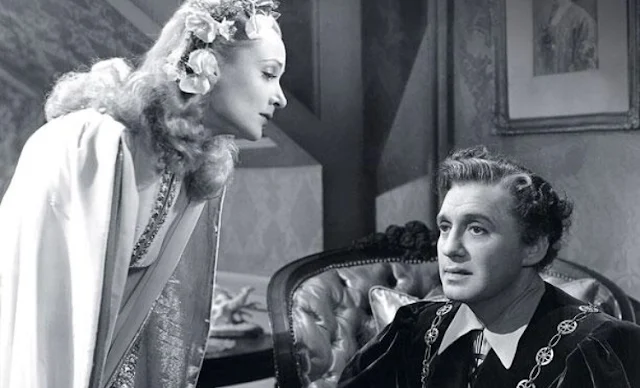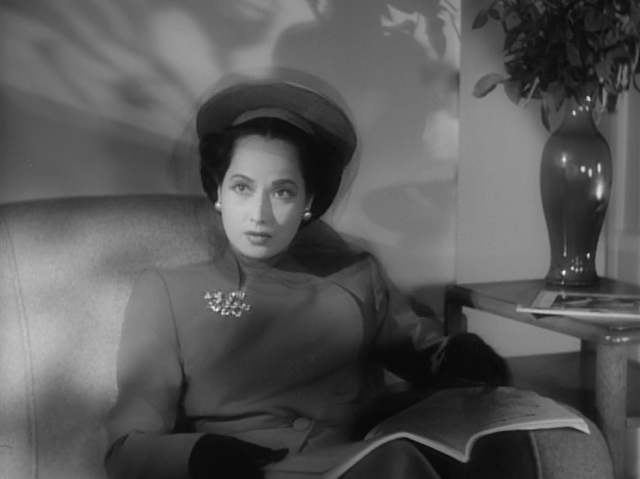A blog formerly known as Bookishness / By Charles Matthews
"Dazzled by so many and such marvelous inventions, the people of Macondo ... became indignant over the living images that the prosperous merchant Bruno Crespi projected in the theater with the lion-head ticket windows, for a character who had died and was buried in one film and for whose misfortune tears had been shed would reappear alive and transformed into an Arab in the next one. The audience, who had paid two cents apiece to share the difficulties of the actors, would not tolerate that outlandish fraud and they broke up the seats. The mayor, at the urging of Bruno Crespi, explained in a proclamation that the cinema was a machine of illusions that did not merit the emotional outbursts of the audience. With that discouraging explanation many ... decided not to return to the movies, considering that they already had too many troubles of their own to weep over the acted-out misfortunes of imaginary beings."--Gabriel García Márquez, One Hundred Years of Solitude
Search This Blog
Showing posts with label Werner R. Heymann. Show all posts
Showing posts with label Werner R. Heymann. Show all posts
Saturday, April 6, 2019
That Uncertain Feeling (Ernst Lubitsch, 1941)
That Uncertain Feeling (Ernst Lubitsch, 1941)
Cast: Merle Oberon, Melvyn Douglas, Burgess Meredith, Harry Davenport, Eve Arden, Olive Blakeney, Alan Mowbray, Sig Ruman. Screenplay: Donald Ogden Stewart, Walter Reisch, based on a play by Victorien Sardou and Emile DeNajac. Cinematography: George Barnes. Film editing: William Shea. Music: Werner R. Heymann.
Tuesday, May 8, 2018
Bluebeard's Eighth Wife (Ernst Lubitsch, 1938)
 |
| David Niven, Gary Cooper, and Claudette Colbert in Bluebeard's Eighth Wife |
Michael Brandon: Gary Cooper
The Marquis De Loiselle: Edward Everett Horton
Albert De Regnier: David Niven
Aunt Hedwige: Elizabeth Patterson
M. Pepinard: Herman Bing
Kid Mulligan: Warren Hymer
Assistant Hotel Manager: Franklin Pangborn
Director: Ernst Lubitsch
Screenplay: Charles Brackett, Billy Wilder
Based on a play by Alfred Savoir and its English adaptation by Charlton Andrews
Cinematography: Leo Tover
Art direction: Hans Dreier, Robert Usher
Film editing: William Shea
Music: Werner R. Heymann, Friedrich Hollaender
Almost anything goes in screwball comedy, but why does Bluebeard's Eighth Wife feel just a tad off the mark? It has everything going for it: director, screenwriters, stars and supporting cast. But something seems to be missing. There are those who think Gary Cooper is miscast, but Cooper pulled off similar roles -- lovable eccentrics like Longfellow Deeds in Mr. Deeds Goes to Town (Frank Capra, 1936) and Bertram Potts in Ball of Fire (Howard Hawks, 1941) -- and director Ernst Lubitsch had established Cooper's gift for sophisticated comedy in Design for Living (1933). There is a certain lack of spark between Cooper and his costar, Claudette Colbert, but that's partly because their characters are not supposed to spark but rather flare. I think the fault lies mainly in the script, which springs Michael Brandon's many previous marriages on us as a surprise and never makes us feel that they're integral to his character. I suspect that the Production Code, which was administered with a heavy hand by Catholic laymen like Joseph I. Breen, blue-penciled so much of the humor surrounding Brandon's divorces that they no longer get the attention they deserve. Still, Cooper and Colbert et al. are fun to watch, and it may be that they are so much more fun to watch in other movies that Bluebeard's Eighth Wife simply suffers by comparison.
Wednesday, April 11, 2018
Ninotchka (Ernst Lubitsch, 1939)
 |
| Greta Garbo and Bela Lugosi in Ninotchka |
Count Leon d'Algout: Melvyn Douglas
Grand Duchess Swana: Ina Claire
Iranoff: Sig Ruman
Buljanoff: Felix Bressart
Kopalski: Alexander Granach
Commissar Razinin: Bela Lugosi
Count Alexis Rakonin: Gregory Gaye
Hotel Manager: Rolfe Sedan
Mercier: Edwin Maxwell
Gaston: Richard Carle
Director: Ernst Lubitsch
Screenplay: Charles Brackett, Billy Wilder, Walter Reisch, Melchior Lengyel
Cinematography: William H. Daniels
Art direction: Cedric Gibbons, Randall Duell
Film editing: Gene Ruggiero
Costume design: Adrian
Music: Werner R. Heymann
I had forgotten how audacious Ninotchka is when viewed in the context of the volatile international politics of 1939, a year teetering on the brink of a world war that had already begun in Britain when the film was released in November. All of the jokes about Stalin's show trials ("There are going to be fewer but better Russians"), about the ineffectual economic planning ("I've been fascinated by your five-year plan for the past 15 years"), and about the deprivations suffered by the Soviet people feel edgy, even a little sour, when we remember that almost everyone was just about to embrace the Soviets as a valued ally against the Third Reich. It's a film that shows a bit less of the "Lubitsch touch" than of the cynicism of Billy Wilder, who co-wrote the screenplay. That it transcends its era and still feels vital and funny today has mostly to do with Greta Garbo, whose shift from the Party-line drone to the vital and glamorous convert to capitalism, along with the delicate way she retains elements of the latter on her return to Moscow, is beautifully delineated. That it was her penultimate film is regrettable, but except for her definitive Camille I think it's her greatest performance.
Saturday, June 10, 2017
To Be or Not to Be (Ernst Lubitsch, 1942)
 |
| Carole Lombard and Jack Benny in To Be or Not to Be |
Joseph Tura: Jack Benny
Lt. Stanislav Sobinski: Robert Stack
Col. Ehrhardt: Sig Ruman
Greenberg: Felix Bressart
Rawitch: Lionel Atwill
Prof. Siletsky: Stanley Ridges
Director: Ernst Lubitsch
Screenplay: Melchior Lengyel, Edwin Justus Mayer
Cinematography: Rudolph Maté
Production design: Vincent Korda
Film editing: Dorothy Spencer
Music: Werner R. Heymann
Topical humor and satire has always been a risky business, as Kathy Griffin learned recently with her gag involving a severed Trump head. When a joke about current events offends rather than amuses an audience, producing stunned silence or at best nervous laughter, comedians usually try to defuse the situation by asking, "Too soon?" For Ernst Lubitsch's To Be or Not to Be, it was "too soon" for a very long time. Begun before Pearl Harbor and completed after the United States had declared war on Nazi Germany, To Be or Not to Be had the further misfortune to be released shortly after the death of its star, Carole Lombard, in a plane crash while on a tour selling war bonds. The unavoidable bad timing resulted in a critical and commercial failure, with many critics echoing the reaction of the New York Times's Bosley Crowther, admittedly a man not known for his lively sense of humor, that To Be or Not to Be was a "callous and macabre" treatment of "a subject which is far from the realm of fun." Even the father of the film's star, Jack Benny, walked out of the picture when he saw his son wearing a Nazi uniform. (He was later persuaded to sit through the movie and liked it.) Critical nervousness about To Be or Not to Be lingered for a very long time, especially among the generation that fought in or grew up during the war. Andrew Sarris, who placed Lubitsch in his "Pantheon" of great directors in his 1968 book The American Cinema, took notice of the film's reputation as "an inappropriately farcical treatment of Nazi terror," and rather oddly commented, "For Lubitsch, it was sufficient to say that Hitler had bad manners, and no evil was then inconceivable." As late as 1982, in her collection of short reviews, 5001 Night at the Movies, Pauline Kael said that "the burlesque of the Nazis ... is so crudely gleeful that we don't find it funny." That last is, incidentally, a prime example of the Kaelian "we," her tendency to include the reader in her own experience of films. As Sam Goldwyn reportedly said, "Include me out." I'll admit that the first time I saw To Be or Not to Be, I was a little shocked by its tone, and especially its portrayal of the Gestapo as a gaggle of brainless schnooks, epitomized by Sig Ruman's easily duped Col. Ehrhardt. Yes, the Gestapo was a formidable instrument of terror, to the point that they remain emblematic of the utmost viciousness of Nazism, especially when countless movies made after the entrance into the war freed Hollywood filmmakers from their obligation to remain neutral. On the other hand, the Spanish Inquisition was an equally formidable instrument of terror, and is anyone really offended when they turn up as a gag line -- "Nobody expects the Spanish Inquisition" -- in Monty Python sketches? Time allows us to distance ourselves from horror, so today most people acknowledge and admire the skill and wit of Lubitsch's satiric farce, which is also a pretty good spy thriller, with genuinely suspenseful moments. Lombard is at her most poised and glamorous, as well as a surprisingly effective foil for Benny, who as the "great, great Polish actor Joseph Tura" for once in his rather undistinguished career in movies -- which never showcased him as well as radio or TV did -- has a chance to display his perfect comic timing. Tura's reaction -- an indignant slow burn -- when the start of his "To be or not to be" soliloquy cues Lt. Sobinski to leave his seat for an assignation with Mrs. Tura is Benny at his best. But the film is also laced with moments of real awareness of the horrors beneath, an awareness that is not really compromised by being made part of a comedy. The most famous line of the film is probably Ehrhardt's observation, in response to the disguised Tura's request for an evaluation of his work on the stage, "What he did to Shakespeare we are now doing to Poland." How this double entendre made it past the Production Code censors, I don't know, but it's evidence that Lubitsch was certainly aware of the reality and not just being "inappropriately farcical."
Subscribe to:
Comments (Atom)









